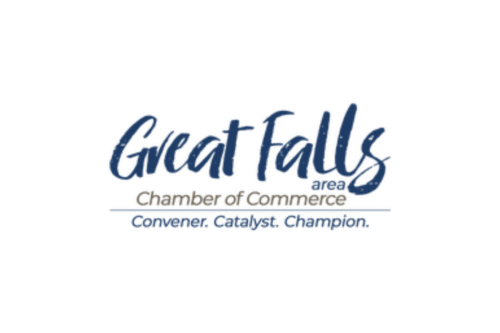As you plan your next association event, the right guest speakers can elevate the entire experience and set the tone for success. A respected keynote or panelist draws attention, energizes attendees and enhances your organization’s credibility. That is why your invitation letter matters. More than a formality, it is the first impression a speaker has of your event and often the deciding factor in whether they accept. A polished, professional and personalized letter makes your request stand out and helps secure the talent you want for your program.
Use the tips below to attract top speakers in your industry and write an engaging invitation that helps bring the high-quality talent you want to your event.
Why a Strong Invitation Letter Matters
An invitation letter does more than share event details. It signals how your association approaches professionalism and relationships. A thoughtful message shows that your team is organized and intentional, giving the speaker confidence in your ability to host a meaningful program.
When you take time to connect their expertise to your event goals, the request feels genuine rather than generic. A personalized letter demonstrates that you understand the value they bring. This not only increases the likelihood of a positive response but also lays the foundation for a strong relationship that can extend to future events or collaborations.
Key Elements of an Invitation Letter for Guest Speaker
Several elements make an invitation letter stand out and attract the right speakers. Be sure to include the purpose of the event, a personalized message, event logistics, speaking role and compensation. Covering these essentials shows professionalism and respect for the speaker’s time, making them more likely to accept.
Clear Purpose of the Event
Your invitation should state the type of event, the date and the audience you expect. A speaker who understands the purpose of the event and their role in it is far more likely to say yes. Keep the explanation clear and concise while still giving enough context to show why their expertise is a strong match.
For example, rather than simply writing “We would like you to speak at our annual conference,” you could say, “Our annual conference brings together over 500 professionals in the hospitality field who are eager to learn about new industry trends. Your recent research on guest satisfaction would provide practical insights that our members can apply immediately.” This type of detail shows the speaker why they are being asked and what their impact will be.
Personalization
Generic invitations are easy to spot. Instead, personalize every message to show that you know the speaker’s background and accomplishments. Mention a recent article, book, award or project to demonstrate that you are familiar with their work. This shows respect for their expertise and makes the request feel authentic.
For instance, you might say, “Your presentation on leadership at the Midwest Leadership Summit last spring resonated with our team. We believe your insights would be equally valuable to our members.” Adding specific references like this creates a stronger connection and helps your letter stand out among the many requests top speakers receive.
Event Logistics at a Glance
Include all the important logistical details in your letter. Share the date, time and location, or provide clear instructions if the event is virtual. Indicate the expected audience size and profile so the speaker knows who they will be addressing.
With hybrid events becoming common, you may want to specify whether the program will be recorded, live-streamed or interactive. A speaker who understands the format and audience expectations will be more confident about participating. Presenting these details in a clear and organized way shows professionalism and allows the speaker to make an informed decision without needing to request additional information.
Speaking Role and Value Proposition
Clearly outline the role you are asking the speaker to take on. This could be keynote presenter, panel participant, workshop leader, moderator or fireside chat guest. Be specific so there is no confusion.
Explain why their expertise is the right fit for the role and how it will contribute to the success of the event. For example, “As a leader in nonprofit governance, your perspective on volunteer engagement would add depth to our opening panel on member retention.” By linking their experience directly to the event, you build credibility and show that the invitation is intentional.
Honorarium, Travel and Support
Transparency about compensation and support builds trust. If your organization is offering an honorarium, travel coverage or accommodations, include that information clearly in the letter. Addressing these details early avoids misunderstandings and demonstrates respect for the speaker’s commitment.
Not every invitation will include a large honorarium, but you can also highlight other benefits. This might include professional exposure, networking opportunities, book sales, media coverage or recorded sessions they can repurpose. When speakers see both the financial and non-financial value of participating, they are more likely to accept.
Call to Action and Next Steps
Always include a clear call to action. Ask the speaker to confirm their availability and provide a specific date for their response so you can finalize planning. Include your direct contact information for questions or clarifications.
For example, “Please let us know by September 15 if you are available to join us as a panelist. You can reach me directly at 555-555-5555 or events@association.org.” Setting clear expectations for follow-up helps the process move forward smoothly.
Common Mistakes to Avoid in Invitation Letters
Avoiding a few common pitfalls can make your letter far more effective:
- Being vague about event details. Specifics show your event is well planned.
- Using an overly stiff or generic tone. Professionalism matters but warmth and sincerity are important too.
- Forgetting to mention compensation or support. Transparency is essential for credibility.
- Overemphasizing your organization rather than the speaker’s role. The invitation should be centered on their value.
- Ignoring accessibility or technical needs. Clarifying these early demonstrates consideration.
- Typos or formatting errors. Mistakes make the invitation look rushed or careless.
- Failing to include a contact person. Make it clear who the speaker should reach out to with questions.
Avoiding these mistakes communicates professionalism and increases the likelihood of a positive response.
Sample Invitation Letter for Guest Speaker
This sample works because it introduces the speaker to the event, clarifies expectations and compensation and provides direct next steps for response.
Tip: This template can be adapted for panels, workshops or virtual presentations by adjusting the role, length and format of the session.
Dear [Guest Speaker Name],
We would like to invite you to be a guest speaker at our upcoming event, [Seminar Name], hosted by [Your Organization’s Name]. The event will take place on August 31, 2025, from 9:00 AM to 2:00 PM at the Grand Ballroom Hilton in Boston, MA. The program will focus on [Seminar Theme].
The event is designed to showcase leaders in the literary world and bring together professionals, students and teachers with a shared passion for reading and writing. As an author with extensive accomplishments, we would be honored to feature you as our keynote speaker.
For your participation, we are offering an honorarium of $5,000, along with full travel and accommodation support.
Please confirm your availability by July 15, 2025. If you have questions or would like to discuss this opportunity, you can contact us at 413-111-2222 or event@help.com.
Thank you for considering this opportunity. We look forward to the possibility of working with you.
Sincerely,
[Name]
[Title]
[Organization]
Tips to Make Your Invitation Stand Out
Highlight Mutual Benefits
Explain what the speaker will gain from the event. Share details about audience size, relevance and exposure. Mention networking opportunities, the chance to connect with other industry leaders or the possibility of showcasing recent work. Pair these benefits with appropriate compensation to create balance and credibility.
For more inspiration on how to boost audience connection, explore these event engagement ideas.
Keep It Concise and Readable
An invitation letter should usually stay under 400 words. Busy professionals are more likely to read and respond when details are presented clearly and efficiently. Short paragraphs and clear formatting make the message easy to scan.
Use Association Branding
Send the invitation on professional letterhead or through a branded email template. Consistent branding reinforces your association’s identity and credibility. It also assures the speaker that the invitation is official and well organized.
Follow Up Politely
Allow at least a week for a response. If you do not hear back, send a short and friendly reminder. Even if a speaker declines, thank them for their time. Courtesy leaves a positive impression that could open the door for collaboration in the future.
Conclusion
A strong invitation letter helps you secure the right guest speakers and set the tone for a successful event. By being clear about logistics, transparent about compensation and respectful in tone, you make it easier for speakers to say yes. Thoughtful invitations not only help you confirm high-quality talent but also strengthen your reputation as an organized and professional association.
When your invitations are professional and personal, you increase the chances of securing top speakers for this event and create connections that can benefit your organization in the long term.
















